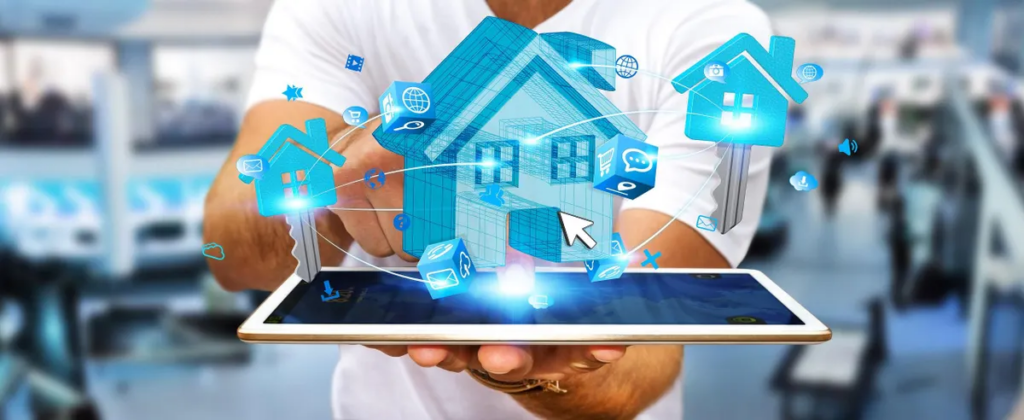The Impact of Technology on Property Management

The evolution of property management has been nothing short of revolutionary, with technology emerging as the driving force behind transformative changes. From traditional, paper-heavy methods to streamlined digital processes, the landscape of property management has witnessed a paradigm shift. In this comprehensive exploration, we’ll delve into the far-reaching impact of technology on property management, dissecting key developments that have reshaped and optimized the way properties are managed and maintained.
Technological Advancements in Property Management
To comprehend the current state of property management, it’s crucial to trace its historical roots. Once reliant on manual ledger entries and cumbersome paperwork, property management has evolved into a digitized realm. Computers and specialized software have become the linchpin, fundamentally altering how property managers approach their daily responsibilities. This chapter provides an in-depth look at the historical context, highlighting the journey from traditional to tech-driven processes that signifies a new era in property management.
Streamlining Operations with Property Management Software
At the forefront of the technological revolution stands property management software, a robust tool that has become synonymous with efficiency and productivity. This comprehensive suite of solutions automates an array of tasks, from rent collection to lease management and maintenance tracking. Property managers now navigate their roles with heightened efficiency, minimizing errors, and gaining invaluable time for strategic decision-making. This chapter delves into the profound significance of property management software, showcasing its transformative role in reshaping the operational landscape.
Data Analytics and Decision Making
The advent of big data has equipped property managers with a formidable ally: data analytics. By leveraging historical data, property managers can make informed decisions regarding property investments, pricing strategies, and maintenance schedules. This chapter explores how data analytics has empowered property managers to adopt a proactive approach, optimizing resources and mitigating risks associated with property management.
Tenant Experience and Communication
Effective communication lies at the heart of successful property management, and technology has been instrumental in reshaping these interactions. Online portals, chatbots, and virtual assistants have become integral in streamlining communication channels, making interactions efficient and transparent. This chapter thoroughly examines how these technological tools contribute to a positive tenant experience, fostering better relationships between tenants and property managers.
Smart Home Technology and Property Management
The advent of smart home technology has ushered in an exciting new dimension to property management. Smart devices, from thermostats to security systems, offer a myriad of benefits for both property managers and tenants. This chapter delves into the intricate integration of smart home technology and its profound impact on improving property management processes, enhancing overall property value, and meeting the evolving needs of modern tenants.
Cybersecurity in Property Management
As technology becomes more deeply embedded in property management, the issue of cybersecurity takes center stage. This section explores the importance of safeguarding sensitive data, preventing cyber threats, and implementing robust security measures to protect both property managers and tenants.
Conclusion
In conclusion, the symbiotic relationship between technology and property management is reshaping the industry’s landscape. The seamless integration of property management software, data analytics, and smart home technology not only streamlines operations but elevates the tenant experience. Property managers who strategically embrace these technological advancements position themselves not only to thrive but to lead in the dynamic and ever-evolving world of real estate management.
In concluding our exploration of the symbiotic relationship between technology and property management, it becomes increasingly evident that we stand on the precipice of a new era. The seamless integration of property management software, data analytics, and smart home technology has not only revolutionized current practices but also foreshadows a future where innovation will continue to be the driving force in the industry.
The transformative power of technology in property management positions the field as a dynamic, ever-evolving space. As we look forward, it’s crucial to acknowledge the role of ongoing technological advancements and their potential impact on how property managers operate. The journey from manual processes to sophisticated digital solutions has paved the way for a more streamlined, efficient, and tenant-centric approach.
In the coming years, we anticipate further breakthroughs that will shape the future landscape of property management. Technologies such as artificial intelligence (AI), machine learning, and the Internet of Things (IoT) are poised to play pivotal roles. AI algorithms can enhance decision-making processes, machine learning can predict property market trends, and IoT devices can create fully interconnected smart properties. These innovations promise not only increased operational efficiency but also heightened responsiveness to tenant needs.
As property managers, investors, and industry professionals, adapting to these technological shifts is not just a necessity; it is an opportunity to thrive in an increasingly competitive market. Embracing the ongoing digital transformation allows property managers to stay ahead of the curve, offering improved services, greater tenant satisfaction, and more strategic decision-making.
In essence, the future of property management in the digital age is a promising horizon. It is a future where the marriage of real estate expertise and technological innovation cultivates an environment of unparalleled efficiency, sustainability, and tenant well-being. As we navigate this evolving landscape, staying attuned to emerging technologies and proactively integrating them into our practices will undoubtedly define success in the property management realm.
If you are interested in The Top PropTech Trends, you can check this Forbes article.


